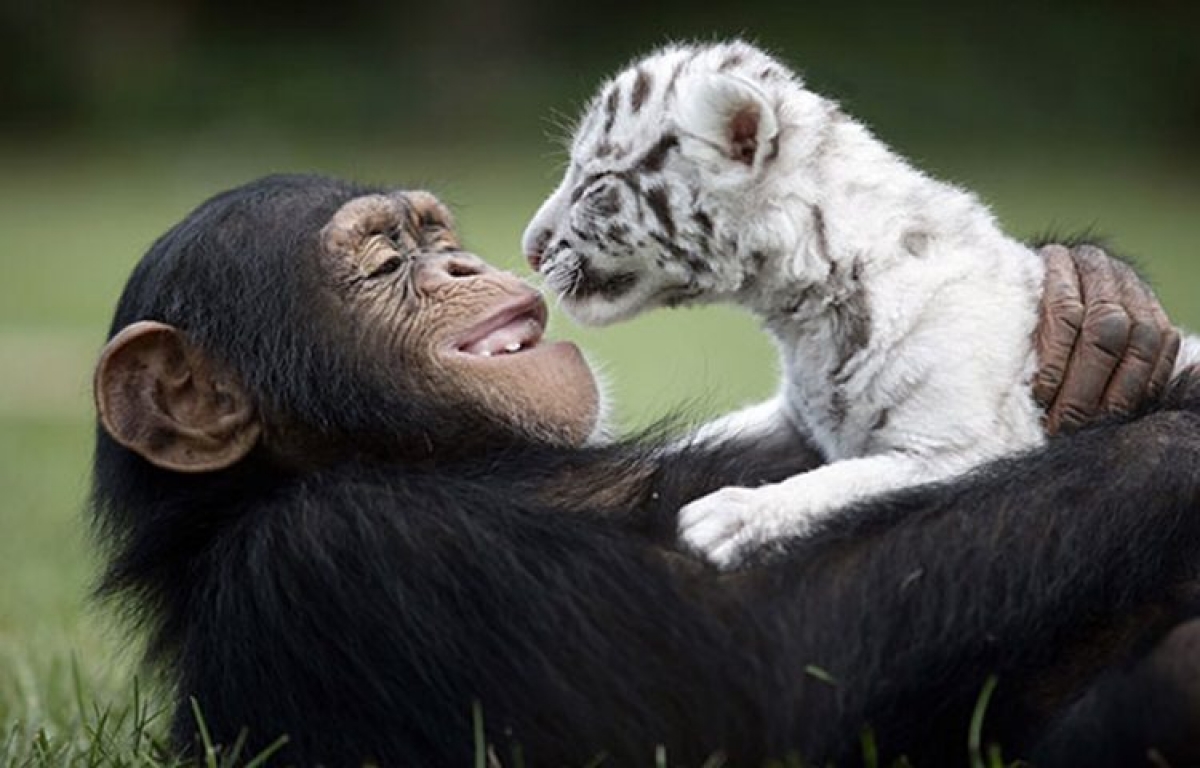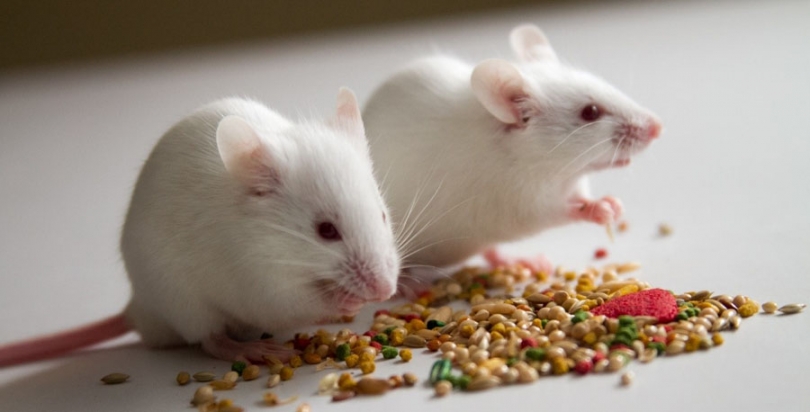Empathy: The Root of Our Human Morality.. Is Not of Human Origin
Animals can feel empathy just like humans do. Empathy for each other, for us, and even for other species.

To read this article in Arabic, click here.
Empathy... feeling what others feel.. the supreme quality of a human being and the root of human social morality... the essence of religion, ethics, conception of good and evil, of what's good and what's bad... What if I told you it is not of human origin, and humans are not the only ones to share it?
To start with, empathy is the ability to not only detect what others feel but also to experience that emotion yourself.. We humans can empathise with each other and other animals. When we empathise, we ‘feel into’ others and understand how they feel.
At first, empathy was believed to be only a human trait, then only among humans and other primates, such as chimpanzees, orangutans... However anyone who has cared for a companion animal such as a dog can realise that both are able to understand each other's emotions.
In her study published in Science in 2011, neurobiologist Peggy Mason and her colleagues at the University of Chicago were finding that when one rat was placed near another jailed rat, the free rat would open the hatch for a rescue; something it wouldn't do for a toy rat. Moreover, when given the choice between saving a fellow rat and some delicious chocolate, the free rat would open the cell and then share. This would give the indication that empathy, although it is in a basic form with rats, would perhaps be universal among mammals. Studying animal empathy could explain to us how human empathy evolved.

However, Mason's results may not be totally definitive. Alex Kacelnik, a behavioral ecologist, argued that Mason was simply projecting humanlike feelings and emotions onto these rat "rescues"; a tendency known as anthropomorphism. "We don’t have evidence that there is an internal first-person experience that leads the animal to do it. Do they experience any emotion when helping a partner? It may as well be, but we don't know."
That doesn't necessarily mean Mason’s findings are incorrect. But they do illustrate a core difficulty in studying animal empathy: While it's easy to observe animal behavior, it's near impossible to confirm the motivations behind that behavior.
Yet empathy can clearly be detected among other mammals, with capacities that vary depending on how animal societies are structured. Dogs have evolved to live in packs and are attuned to our emotional needs, especially that man and dogs have been living together for thousands of years and this cohabitation could be the reason of how the latter evolved from wolves. Cats, evolved to be solitary hunters, care much less. The most humanlike emotional capacities are found in chimps and primates.
It is thought that empathy is more likely to be present in social species. James Harris at Johns Hopkins University in the US believes that empathy is “an evolutionary mechanism to maintain social cohesion. If you’re evolving and you’re in a group, you’re more sensitive to the pain of other members in a group.”
"IT IS HARD TO IMAGINE THAT EMPATHY — A CHARACTERISTIC SO BASIC TO THE HUMAN SPECIES — CAME INTO EXISTENCE ONLY WHEN OUR LINEAGE SPLIT OFF FROM THAT OF THE APES."

So, how does that affect our definition of ethics and morality?
In recent decades, there has been a resurgence of interest in the idea that empathy or sympathy is central to moral judgment and motivation. This is not a new idea, both religion and philosophy have favored empathy, sympathy, or compassion as key to moral thought, conduct, or motivation.
In her book The Reflective Parent, Regina Pally briefly covered the topic of moral behavior as follows:
"People will go into a burning building to rescue another person. Less heroic forms of moral behavior occur daily as we avoid bumping into people and try not to hurt their feelings. Morality and moral decision-making involve some degree of rational thinking, but for the most part involve the ability to feel the emotions and distress of others (Keysers, 2011). Much of our moral behavior relates to preventing pain in others and relies on the brain’s shared circuitry for pain and emotional distress. When people have their brains scanned while they make difficult moral decisions, one of the regions activated is their anterior cingulate cortex -- the region where we experience pain."
"What you do not want done to yourself, do not do to others." Conficius - c.400 BC
Therefore, and since we - humans - are social beings, morals which are the rules of conduct within a group or society, are directly linked to how we behave in this society, and how we act towards each other. And if we analyse the laws of morality, we can find that most if not all of them, are based on the principle that each of us has to think of the benefit of others to create a harmony in society regarding his life. Caring for each other could have never existed without empathy.
Hence, what we always regarded as supreme and human, is actually a common work of nature among its social children. That doesn't take away the fact that we are special and unique among the animal kingdom. We are the only ones capable of making cognitive judgements about our own and other people's behaviour, and to have the capacity to consciously change the way we behave. Our empathy is pressed through a cognitive filter, our brain or mind, which can be as much harmful as helpful. Sometimes this filter acts as a block against our natural empathy, leading to cruel and barbaric behaviours. In other cases, it amplifies this sense of empathy inside us...
The Largest Insect Ever Existed Was a Giant 'Dragonfly'
Weird History 'Meganeura' Was A Prehistoric Dragonfly With A Two-Foot Wingspan.
War & Violence? Humans Are Genetically Predisposed To Kill Each Other
Do humans kill each other because it’s in our blood, or is it all based on our environment?
What Do Great Leaders Have in Common?
From ancient to modern, all great leaders share common key denominators.














